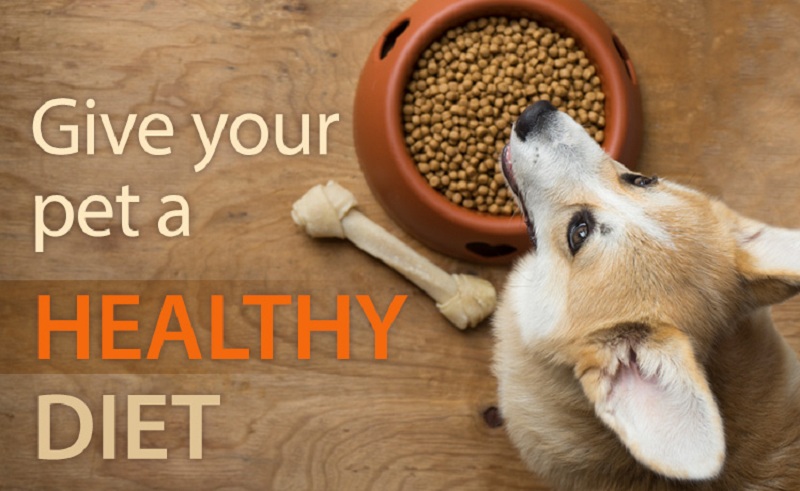For any devoted pet owner, one of the most crucial aspects of pet care is ensuring that our four-legged friends have access to a nutritious and balanced diet. The right food can make all the difference in your pet’s energy levels, coat luster, and overall health. It’s not just about keeping the food bowl full; it’s about filling it with the right food.
Understanding Pet Nutrition Basics
Whether you’re a new pet parent or experienced in animal care, discovering resources like Click Here can be a cornerstone in managing your pet’s dietary needs. Finding high-quality food that matches their nutritional requirements without falling into the trap of clever marketing ploys can be a less taxing experience with the proper guidance.
Starting with nutrition fundamentals, we must consider that different pets have varying needs specific to their species, breed, and individual characteristics. A well-rounded pet diet includes a balanced mix of proteins for muscle repair, fats for energy and a healthy coat, carbohydrates for fuel, and a range of vitamins and minerals for bodily functions. A deficit or excess in any of these can lead to health complications. Pet owners must identify signs of poor nutrition, including dull coats, lethargy, or digestive issues, and address them promptly. Additionally, understanding the natural diet of your pet’s species can help simulate a more authentic and beneficial meal plan.
How to Read Pet Food Labels Like a Pro
The pet food aisle can be overwhelming, with countless options and bold health claims. However, understanding pet food labels is akin to decoding a map; once you grasp the key landmarks – such as ingredient lists, guaranteed analysis, and feeding guidelines – you can navigate to the healthiest choices for your pet. Ingredients on pet food labels are listed by weight; hence, the first few ingredients should contain one or more high-quality protein sources. Grains and fillers should be minimized. Moreover, be skeptical about generic terms like ‘meat meal’ and look for specifics. It’s also vital to scrutinize the guaranteed analysis section, which gives you an idea about the percentages of protein, fat, fiber, and moisture, ensuring a balanced diet tailored to your pet’s stage of life.
The Role of Hydration in Pet Health
Water is the unsung hero in our pets’ diets. Adequate hydration is essential for digestion, nutrient absorption, and temperature regulation. It becomes even more critical for pets consuming dry food to increase their water intake. Pet owners should always ensure fresh water and drinking vessels are cleaned regularly. Monitoring your pet’s water consumption can also indicate health; a sudden increase or decrease in drinking may warrant a discussion with your vet. Urge your pet to drink more by placing several water bowls around the house, considering water fountain dispensers that provide a continual source of fresh, running water, which many pets find attractive.
When Supplements and Vitamins Make Sense
Sometimes, your vet recommends supplements – perhaps due to specific health conditions, deficiencies, or life stages where additional nutrition is beneficial. For example, joint supplements are for older dogs, and calcium supplements are for nursing cats. Opting for high-quality supplements and adhering to the prescribed dosage is critical. Remember that these nutrients are supplementary and should not replace a balanced diet. Over-supplementation can be harmful, so it’s best followed under guidance – the information offered by resources on pet supplements, such as what PetMD provides, can be invaluable in these cases.
Navigating the Challenges of Food Sensitivities and Allergies
Food intolerances and allergies in pets can cause symptoms from itchy skin to digestive distress. Identifying and managing these sensitivities means observing your pet’s reactions to certain foods and possibly working with your vet to determine a hypoallergenic diet. Once the offending ingredients are known, pet owners can seek out specialized foods free from allergens. A tailored diet alleviates symptoms and enhances the pet’s overall health and happiness.
Adjusting to Your Pet’s Changing Nutritional Needs
Pets’ nutritional needs evolve significantly as they grow from playful puppies or kittens into adults and eventually into their senior years. While younger pets require diets rich in energy and nutrients for development, seniors may benefit from lower-calorie diets or those formulated for sensitive stomachs. It’s about finding the nutrition that best supports each stage of your pet’s life while considering any health issues that may arise. As the American Veterinary Medical Association suggested, diets accommodating their slower metabolism and possibly supporting joint health are worth considering for aging pets.
Healthy Treats: Enhancing Training with Nutrition
We often express love for our pets through treats, but it’s essential to do so without compromising their dietary health. Healthy treats should provide nutritional or dental hygiene benefits rather than empty calories. Limiting treatment intake is also necessary to prevent weight gain and nutritional imbalances. The proper treats can be beneficial tools for training and reinforcing good behavior without undermining a well-planned diet.
Monitoring for a Happy, Healthy Weight
Keeping an eye on your pet’s weight is crucial, as both underweight and overweight can lead to health issues. Regular weight checks at home or during vet visits help ensure your pet stays on track with a healthy weight range. Adjustments to their diet or exercise routine can then be made to keep your pet at an ideal weight, thus preventing obesity-related conditions like diabetes, arthritis, and heart disease. Consistent monitoring and tweaks to their diet, as needed, can make all the difference in maintaining your pet’s optimal health.
Exercise and Diet: Two Peas in a Pod
Our furry friends need physical activity just as much as they need a healthy diet. Exercise prevents boredom, reduces behavioral problems, aids digestion, and helps maintain a healthy weight. The amount and type of activity required can vary greatly depending on the pet’s breed, age, and health condition. The diet should provide the necessary calories and nutrients to support this physical activity without leading to weight gain. This synergy between diet and exercise is essential for your pet’s health and well-being.
Stay Updated on Pet Nutrition Trends and Research
As in human health and nutrition, new research and trends consistently emerge in pet food and diet. Staying informed through trusted veterinary sources, academic research, and specialized pet nutrition outlets ensures that you provide your pet with the most updated practices in dietary care. Knowledge is power when choosing the best food for your pet and tailoring their diet to their needs. Look for high-quality, research-backed information to keep your pet on the path to good health.
Maintaining a healthy diet is a dynamic process that requires attention and adjustment as your pet grows and changes. By staying diligent and informed, pet owners can give their furry companions the foundation they need to live a happy and healthy life. Each of the ten tips here offers a building block for constructing a robust and nurturing diet that can elevate your pet’s living standard in noticeable and enduring ways.

